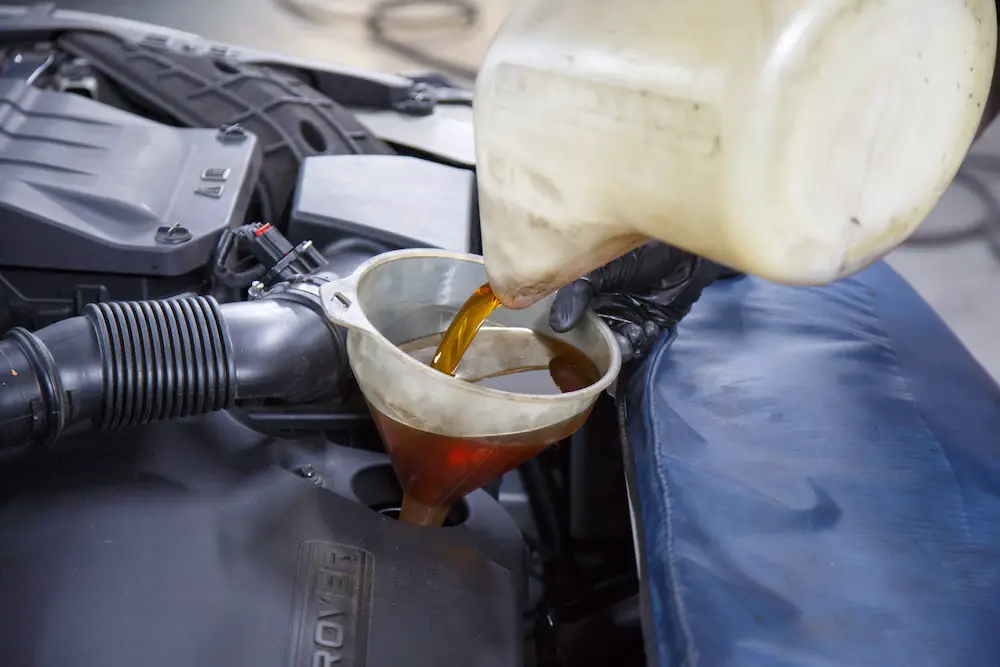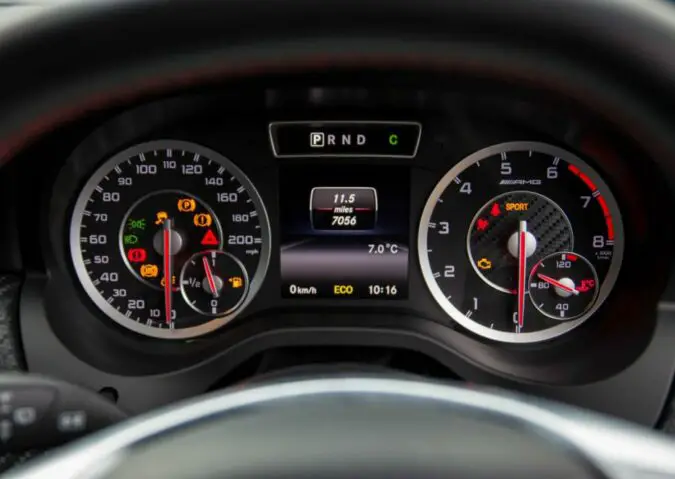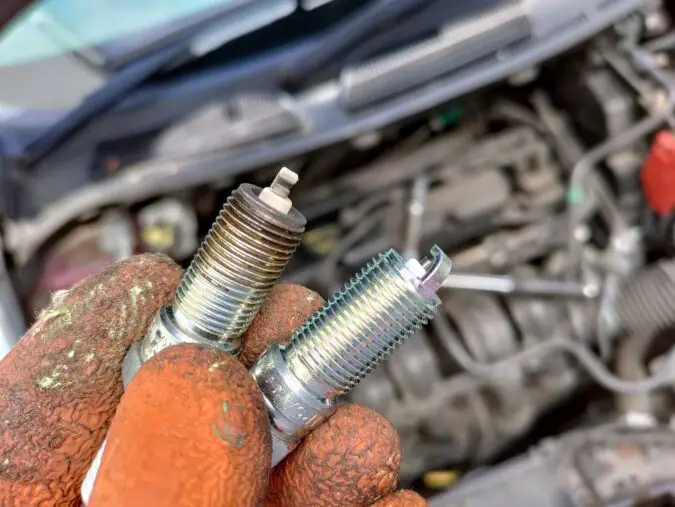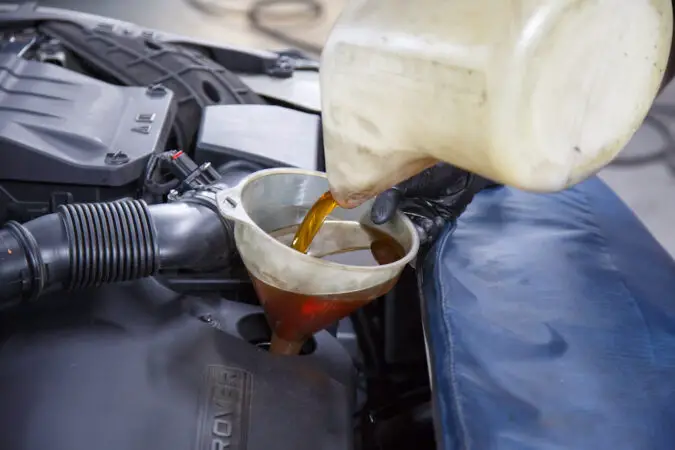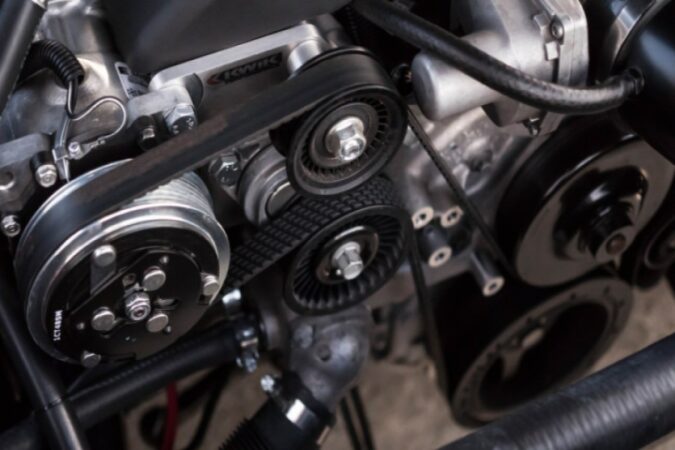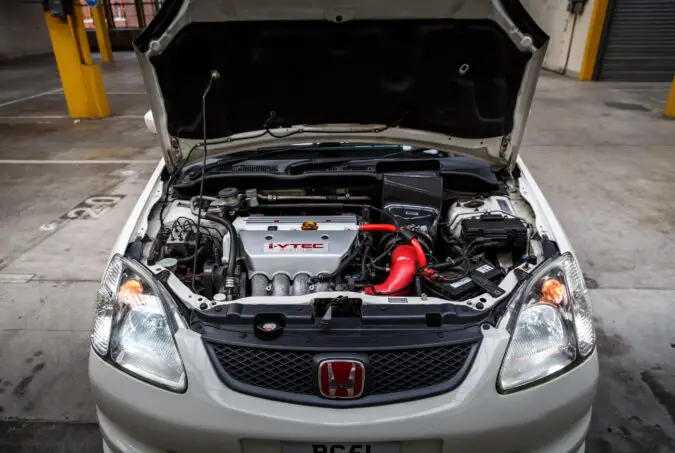Does your car struggles to start when engine is cold? Engines are not big fans of cold weather. Some of us may have realized this after heavy rain or snow when the weather is cold. It is rather annoying and time-consuming when you are set to leave for work, and your car refuses to start due to old weather conditions. Due to the technology used in older models, this is quite normal in older cars.
However, if your car is a modern, technology-focused machine and you experience this situation, something is wrong. If your car struggles to start when engine is cold, many factors can contribute to this.
Most frequently, a weak or failing battery is the culprit. Other times, other components in your car’s engine will stop your engine from starting in cold weather. In this article, we will be exposed in detail to all the possible causes of this frustrating occurrence and how to prevent it from happening in the future. Let’s get into the interesting part.
Why Car Struggles To Start When Engine Is Cold
There is no smoke without fire. A variety of factors can cause a cold start problem.
Understanding the common causes of why cars struggle to start when engine is cold is significant in finding solutions. Here are the common causes of your car’s failure to start after or during cold weather.
1. Battery Issues
This is the most common reason why a car won’t start in cold. For a car’s engine to start, enough voltage is needed to jump-start the car’s engine. The batteries supply this initial, cranking voltage.
For a car battery to work, chemical reactions need to occur. These chemical reactions do have their ideal reaction temperatures due to the nature of the chemicals involved. We will consider the following to fully understand the different factors that can affect your car battery’s performance.
2. Temperature Of Battery Chemicals Is Below Activation Energy
Science savvy car owners may have heard of the scientific term “Activation Energy.” That is the energy required for a chemical reaction to proceed. This comes into play in car batteries because they are made of chemical components.
These chemical components need a certain temperature limit to react and produce the necessary voltage for your car’s engine to start. That becomes a problem when your battery becomes “too cold.” Hence, chemical reactions are halted, resulting in a lack of voltage to start your car’s engine during cold weather.
One local way of resolving the abovementioned issue is by placing your car battery in a warm place or heating it a bit using air conditioners. Once your car battery is brought back to normal temperatures, take it back to the car and try starting the engine again. If a “cold battery” was the issue, your car engine should be able to start properly this time around.
3. Weak Or Dead Car Battery
Continuous use of your car battery will weaken its chemical components. When these components weaken, the voltage strength reduces due to weaker chemical reactions.
It is recommended that weak car batteries be replaced with new ones. Alternatively, an expert might recycle the old battery and refill it with new acid. You cannot compare recycled batteries to brand-new car batteries, though.
A weak or dead car battery dies in cold weather and will not start your car engine. That is because, in cold weather, your car’s engine requires more power to start.
What to do?
Experts advise checking the battery contact points for corrosion or rust; a corroded contact point will reduce battery efficiency, making the engine difficult to start in cold weather.
When considering a new battery replacement for your car (and bearing in mind how much does a car battery cost and how to install a car battery, as well as the new car battery cost), we recommend you go through the next section for proper decision-making.
Best Car Batteries For Cold Weather
Most car owners ask, “Which car batteries are the best for cold weather?” It is normal for car battery manufacturers to place advertisements on boards claiming to have the best car battery for cold weather conditions.
Although some of these car batteries have failed numerous cold weather tests, some brands actually stand out when it comes to car batteries that perform excellently well in cold weather.
Here is a list of the best batteries for cold weather that have been tested and trusted to perform well in cold weather.
A) Optima Yellow Top Battery (8171-767)
This car battery has a low internal resistance due to its 99% pure lead makeup. Its electrical conduction is almost unrivaled and recharges faster, thanks to its low internal resistance.
Its high-end cranking power makes it even more efficient. It is durable. Its strong cast cell connection will eliminate a situation where a car struggles to start when engine is cold.
However, this battery comes with its own faults: a shorter lifespan and a bulky size. Apart from these disadvantages, the Optima is a great battery for starting your car engine in cold weather.
B) ACDelco ACDB24R Car battery
This battery is famous for its lengthy lifespan and great performance in cold weather. This battery has a high-performance cycling capacity that is leakproof, eliminating the possibility of your car battery dying out in cold weather. It is easy to install and gets your car’s engine rolling anywhere, anytime.
Containing cancer-causing chemicals is one of the disadvantages of this battery. It also requires periodic maintenance. Overall, this is among our best picks regarding batteries that can start your car in cold weather.
Still, on factors that cause a situation where a car struggles to start when engine is cold, we are going to look into other causes.
4. Using Engine Oil With Wrong Motor Oil Freezing Point
It’s a well-known fact that liquids become denser in cold conditions. That also applies to vehicle engine oils when it approaches their motor oil freezing point. In cold weather, engine oil thickens and is more difficult to push around your engine’s moving parts. We have more insight on this in our guide on does oil freeze.
That can be a problem because the engine will require more power to circulate the thick engine oil to essential parts. Hence, moving motor parts experience friction because of a lack of lubrication. That could result in a situation where the car struggles to start when engine is cold.
Experts advise that you strictly adhere to the car manufacturer’s engine oil specification. Using the wrong engine oil with a different viscosity than the recommended oil amounts to oil thickening during cold weather.
5. Faulty Coolant Sensors
Modern car engines come clad with numerous temperature sensors. One of which is the coolant temperature sensor. This coolant temperature sensor detects if an engine is “cold.”
Once a cold engine is detected, the coolant temperature sensor tells the Engine Control Unit (ECM) to add extra fuel to the injection module; as more fuel is burnt to start an engine in cold conditions.
When this coolant temperature sensor goes bad, extra fuel will not be injected. Hence, the car struggles to start when engine is cold.
What to do?
Use a diagnostic tool to see if error codes point to a faulty coolant temperature sensor or any more sensors.
Once a faulty coolant temperature sensor is diagnosed, call for the help of an electrician, as fixing it yourself might put more bills on your table.
6. Faulty Ignition
An ignition system controls most of the electrical aspects of your car’s engine. The ignition system includes spark plugs, switches, wires, rotors, distributors, etc. Any of these components can go bad due to cold weather.
7. Faulty Spark Plugs
During cold conditions, a spark plug may become “too cold” to produce sparks that light up your car’s engine. When this happens, your car’s engine will keep cranking, all to no avail. We advise you to remove your spark plugs and warm them up before trying again.
A worn-out or damaged spark plug might also be the culprit. Periodic changing of your spark plugs or proper maintenance of the spark plugs is advised. Consult the manufacturer’s manual for guidelines on replacing damaged spark plugs.
8. Faulty Ignition Switch
This ignition system component starts up the electrical systems once the car key is turned. A bad ignition switch will cause the inability of the engine to start in cold weather.
Since the ignition switch controls most of the engine’s electrical components, the engine lights may not come on if a bad ignition key is a problem. Hence, once you start your car engine and it doesn’t crank but your headlights and car radio are on, the problem is not your battery, and a faulty ignition switch should be suspected.
The only solution, in this case, would be to change your ignition switch.
9. Faulty Fuel Pump
A fuel pump delivers fuel from your fuel tank to your engine, where it is mixed with air and burned. A faulty fuel pump will lead to inefficiency in delivering the required fuel to the engine, so the car struggles to start. You should install a new fuel pump to fix the problem. Just be wary of the fuel pump price and where to get a fuel pump replacement near me.
Just make sure you’re wary of how much is a fuel pump. In many cases, the fuel pump is fine, but gelling can be a problem in cold weather. Now, what in the world is gelling?
10. Gelling
Gelling is a phenomenon where wax is emitted from fuel due to extremely low temperatures. With time, paraffin forms from the fuel and, within a short time, forms a dense slushy semi-liquid thicker than normal fuel.
If this happens, the fuel pump will have difficulty moving the thicker fuel to the engine. As a result, the car struggles to start when engine is cold.
11. Clogged Fuel Filter
Fuel filters prevent debris and dust contaminants from entering a car’s engine via the fuel. Over time, this filter accumulates dirt and becomes clogged.
A clogged fuel filter prevents enough fuel from getting to the engine and causes hard starts, especially in cold weather.
Remove your fuel filters and view them through a bright light source. If the light doesn’t pass through the filter, it’s time to change.
12. Clogged Fuel Injectors
As the name implies, fuel injectors inject fuel into the combustion chambers/ cylinders. A clogged fuel injector means less fuel injection, causing the engine to not work properly, especially in cold weather conditions.
Vehicle engines consume more gas when the temperature is low. Having a fuel injector that is clogged might cause significant issues.
Washing fuel injectors will help remove dirt and debris.
13. Frozen Fuel Lines
Fuel lines are tiny pipes and tubes that transport fuel from the fuel tanks to the combustion chamber and other engine parts where fuel is needed. Gelling (dense fuel fluid caused by cold weather) of fuel residue will affect fuel movement in these pipes.
Water contaminants can form ice in these tubes and block fuel transport. Hence, a car struggles to start when engine is cold.
A frozen fuel line can be fixed when you use additives that contain alcohol, increasing the freezing point of water and preventing the pipes from freezing during cold weather.
14. Faulty Starter Motor (Solenoid)
Starting a car engine in cold weather isn’t as straightforward as most people think. When you turn a car key in the ignition, the engine has to suck in air and fuel for combustion to take place and start revving. This first process before intaking air and fuel mixture is done by the starter motor (solenoid).
The starter motor (solenoid) spins the engine to draw in air and fuel mixture when you switch on the ignition. With a bad solenoid, the whole starter motor breaks down, causing the engine to only crank without being able to start.
Change the faulty starter motor (once you’ve diagnosed how to know if starter is bad) to start your car’s engine.
15. Frozen Carburetor
For older car models, a carburetor is employed to regulate the mix of air and fuel required for combustion in combustion chambers. Cold temperatures affect carburetors, and they can easily freeze up.
A frozen carburetor will affect the air-fuel mixture ratio; this is why a car struggles to start when engine is cold.
A popular method of starting a car engine despite a frozen carburetor is to keep pumping with your accelerator pedal while cranking the engine. This method tries to pump more fuel and air mixture through the frozen carburetor to the combustion chambers.
A more advanced method of fixing the frozen carburetor issue is to manually inject fuel into combustion chambers to give your car engine the much-needed boost to start revving.
However, most modern cars use fuel injectors and are immune to this problem.
Car Struggles To Start When Engine Is Cold – Preventive Tips
A coming winter season can mean two things: you are about to spend a couple of bucks for the Christmas holidays, or your car is about to give you a tough time. Dealing with your car’s engine refusing to start due to cold weather conditions can be frustrating.
Preparation is paramount if you will pull through the strains of surviving through the winter. You may want to consider these preventive measures to prevent your car from throwing more bills on the table.
Your car is sure to run smoothly during the winter if you take the following steps:
Car Struggles To Start When Engine Is Cold Prevention #1: Change Your Oil And Oil Filters
Having the recommended high-quality engine oil in your car during winter will greatly increase its performance. The engine oil viscosity will be appropriate and easily transported without requiring more power.
As previously mentioned, having the wrong engine oil during winter will only lead to the friction of moving engine parts. Hence, the car struggles to start when engine is cold.
Change clogged oil filters just before winter to avoid the car being too cold to start.
Car Struggles To Start When Engine Is Cold Prevention #2: Take Good Care Of The Battery
Cold weather affects battery performance and reduces cranking power produced due to low chemical reactions. You should check the battery to ensure it’s in premium condition.
Recharge weak batteries or buy a new battery to replace a bad one. Cold weather takes a huge toll on weak batteries, hence the need to prevent such nasty occurrences adequately.
While replacing a car battery, endeavor to buy batteries with proven records of excellent performance in winter. Not all car battery brands do well with the cold.
Car Struggles To Start When Engine Is Cold Prevention #3: Replace Tires With Winter Tires
We recommend that you change your car tires to winter tires. Winter tires provide more traction and prevent common accidents like skidding and crashes during the winter.
Car Struggles To Start When Engine Is Cold Prevention #4: Service Brake Pads
Cold weather also affects your car’s braking system (especially if you notice a “service brake assist” light). Brake fluids may become denser during winter and reduce braking power. Many drivers do complain that braking in winter is a bit difficult.
Go for a checkup and possibly replace any faulty braking components to avoid accidents while driving.
Car Struggles To Start When Engine Is Cold Prevention #5: Park Under A Shelter Or Garage
As you already know, car engines and batteries are not big fans of cold weather. Leaving your car in an open or unsheltered environment can greatly damage its engine and internal components. It will leave them exposed to harsh weather. Leaving a car unsheltered always results in a frozen engine or a frozen car.
Always park your car in a garage. Even if you have no garage, it is recommended that you park it under a tree or any form of cover at all.
It would help if you also bought a tick trampoline to cover your car with. That helps keep your car warm by a few degrees. The difference between your car’s engine starting or not starting can be just a few degrees.
Car Struggles To Start When Engine Is Cold Prevention #6: Periodically Inspect Belts And Piping
Always check for any signs of wear and cracks on your engine components. Any engine component, like belts, pipes, etc., may not withstand extreme weather conditions and present a cold start problem.
Replace worn-out or cracked piping and belts to ensure maximum engine performance in winter.
Car Struggles To Start When Engine Is Cold Prevention #7: Antifreeze Additives For The Radiator
A 50/50 antifreeze-to-water ratio is recommended in most climates, except in extremely harsh cold weather. Frozen radiator liquid can cause significant engine damage due to overheating.
Always test the freezing temperature of the liquid in your radiator using an antifreeze tester by drawing out radiator fluid. Testing helps check the minimum temperature required for radiator fluid to freeze and cause damage to the car’s engine.
Last Words On Car Struggles To Start When Engine Is Cold
Engines, like many other engines, do not give the best performance in cold weather conditions. As the climate changes and becomes colder, certain components like car batteries, engine oil, fuel filters, fuel pipes, and faulty temperature sensors respond slowly when starting a car engine due to cold weather.
Cold weather deals extra damage to weak batteries. It reduces the voltage produced and hence prevents the engine from turning over. The recommended car batteries that perform well in cold weather include the: Optima Yellow Top Battery (8171-767) and the ACDelco ACDB24R car batteries.
In cold weather, usage of the incorrect type of engine oil can increase the amount of viscosity and friction in the engine’s moving components. An engine subjected to a significant quantity of friction will not start because the amount of power required to start it is more than what is available.
We have also examined how faulty temperature sensors contribute to a cold start problem. These sensors should be replaced using the abovementioned guidelines.
Take preventive measures when approaching winter to cut down the cost of vehicle repairs further. And as the saying goes, “a stitch in time saves nine”, so car owners should follow all preventive measures judiciously to avoid a “had I known” situation!
FAQs On Car Struggles To Start When Engine Is Cold
Can A Bad Starter Drain A Battery
Yes. A bad starter means more power from your battery due to cranking attempts. If you have a bad starter, endeavor to repair or change it as soon as possible to avoid having to change the car battery too.
Why Won’t My Car Start In The Cold
Various factors can cause this, from the weakened battery to faulty temperature sensors. A cold engine requires more power to start, and if any of the abovementioned items are not in good condition, the engine won’t start.
How To Cold Start A Car
When starting a car in cold weather, you can try pumping fuel via the accelerator pedals while cranking the engine. That increases the fuel and air mixture entering the combustion chambers, increasing the chance of your car’s engine starting.
What Temperature Kills A Car Battery
Extreme high or low temperatures can kill a battery. The latter is the most common cause of battery failure. Cold temperatures weaken the chemical activity in car batteries, resulting in a probability of weakening or killing the battery.
Does Gasoline Freeze
Yes. At extremely low temperatures of about -100 degrees F, gasoline freezes. There’s a slight variation depending on the octane number.
What Sensors Can Cause A Car Not To Start
A faulty coolant temperature sensor will prevent your car from starting in cold weather.

